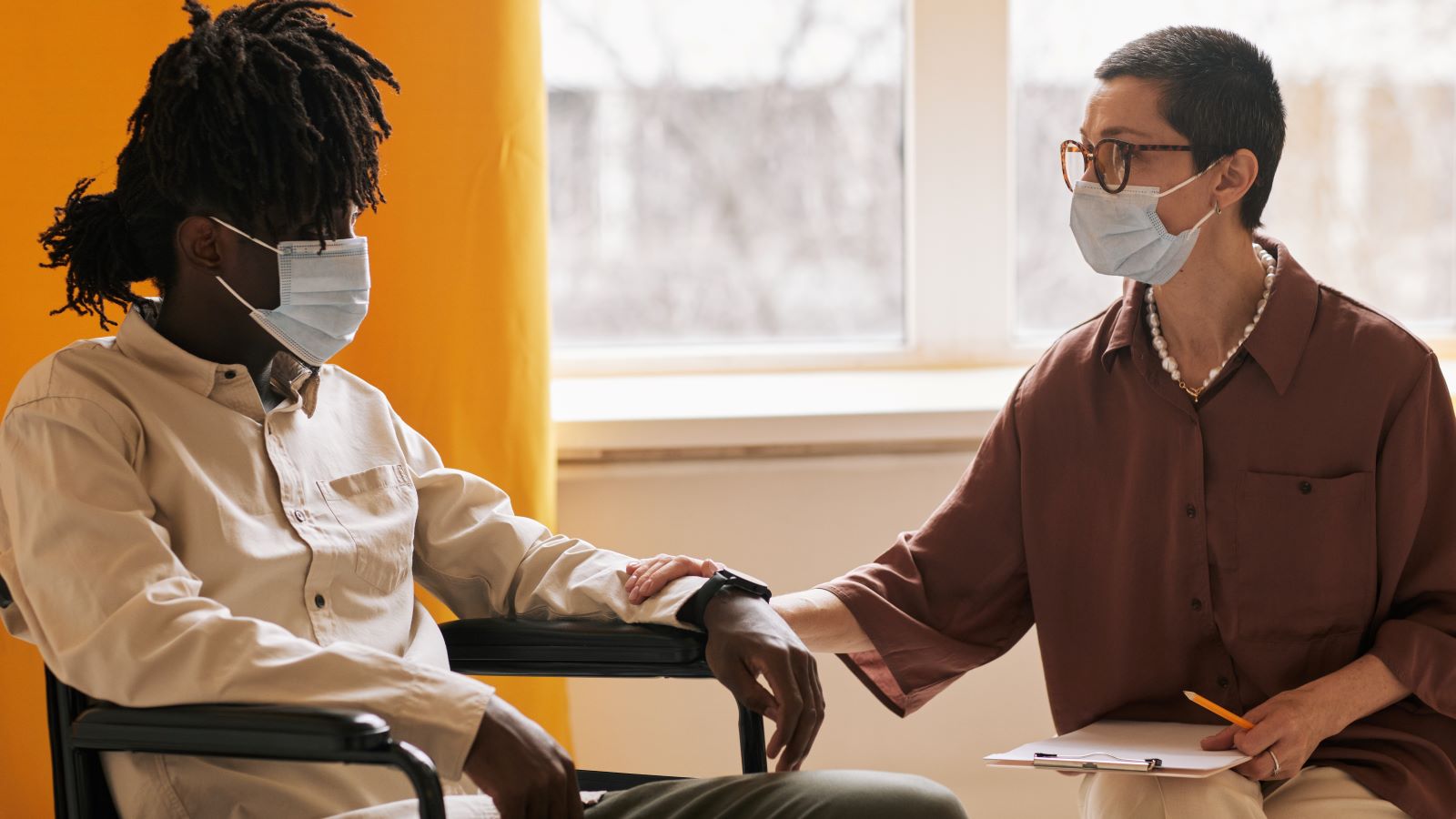Several health conditions cause higher risk of death from COVID-19, and a recent study added schizophrenia to the list, causing Hartford HealthCare specialists to suggest extra steps be taken to protect those with the disease.
The research, published in the Journal of the American Medical Association Psychiatry, examined almost 7,500 adults during three months in 2020, noting those with schizophrenia spectrum disorders were more likely to die from COVID – in fact, schizophrenia was the biggest risk factor besides age for COVID mortality. Mood and anxiety disorders were not connected to the higher risk.
“This highlights the importance of taking steps to protect this medically vulnerable population from viral infections such as COVID,” said Jimmy Choi, PsyD, a senior scientist at the Institute of Living (IOL) Olin Neuropsychiatry Research Center, and neuropsychologist at the Schizophrenia Rehabilitation Program.
Neither Dr. Choi nor Dana Shagan, PsyD, Schizophrenia Rehabilitation Program manager, were surprised by the research.
“People with schizophrenia are prone to metabolic syndrome, which includes increased blood pressure, high blood sugar, excess body fat around the waist and abnormal cholesterol or triglyceride levels due to the medications they take and various lifestyle factors,” Dr. Shagan said. “Schizophrenia is also associated with systemic inflammation, which is exacerbated by COVID. Researchers are exploring whether the inflammation associated with schizophrenia may explain why people with the illness are at greater risk for severe illness and death when they contract COVID.”
In general, people with schizophrenia have a higher mortality rate, evidenced in decades of scientific literature, Dr. Choi explained.
“We have known since the 1980s that schizophrenia is associated with premature death. It continues to be an area of priority for federal agencies,” he said, noting that the National Institute of Mental Health (NIMH) found the average loss of life for Americans with schizophrenia is 28.5 years.
According to NIMH, “Co-occurring medical conditions, such as heart disease, liver disease and diabetes, contribute to the higher premature mortality rate among individuals with schizophrenia. Possible reasons for this excess early mortality are increased rates of these medical conditions and under-detection and under-treatment of them.”
The COVID pandemic posed immense challenges for Dr. Shagan’s program, which offers support for adults with schizophrenia to achieve functional goals such as work, school and independent living.
“Phone calls and video sessions helped clinicians stay in touch with clients during the early pandemic lockdown, but the isolation was particularly difficult for people with severe mental illness, and caused a dramatic increase in their psychiatric symptoms,” Dr. Shagan said. “We made it a top priority to bring people back to in-person care as soon as possible. With vaccinations and other protective measures, clients are back for treatment and benefitting from the contact.”
Even though in-person care is better, the precautions of masking and social distancing present challenges. Being among people who are wearing masks proves difficult for people prone to paranoia because it is much harder to read facial cues and expressions with the bottom half of the face covered, she explained.
“Reading social cues is often difficult for people with schizophrenia,” Dr. Shagan said. “If a person can’t read someone’s emotion or intent correctly because the whole mouth area is covered, it may trigger paranoia.”
While Dr. Choi said the research about increased COVID deaths “continues to highlight that people with schizophrenia are at risk for premature death due to a number of reasons, one of which may be viral infections,” Dr. Shagan said addressing lifestyle and holistic wellness helps.
“Like anyone, we suggest they stay physically and cognitively active, stay socially engaged, use coping skills to manage stress, keep their primary care provider visits and take their prescribed medications,” she said. “We emphasize the importance of getting vaccinated and taking other precautions for people with schizophrenia due to the increased vulnerability to severe COVID infection and illness.”


